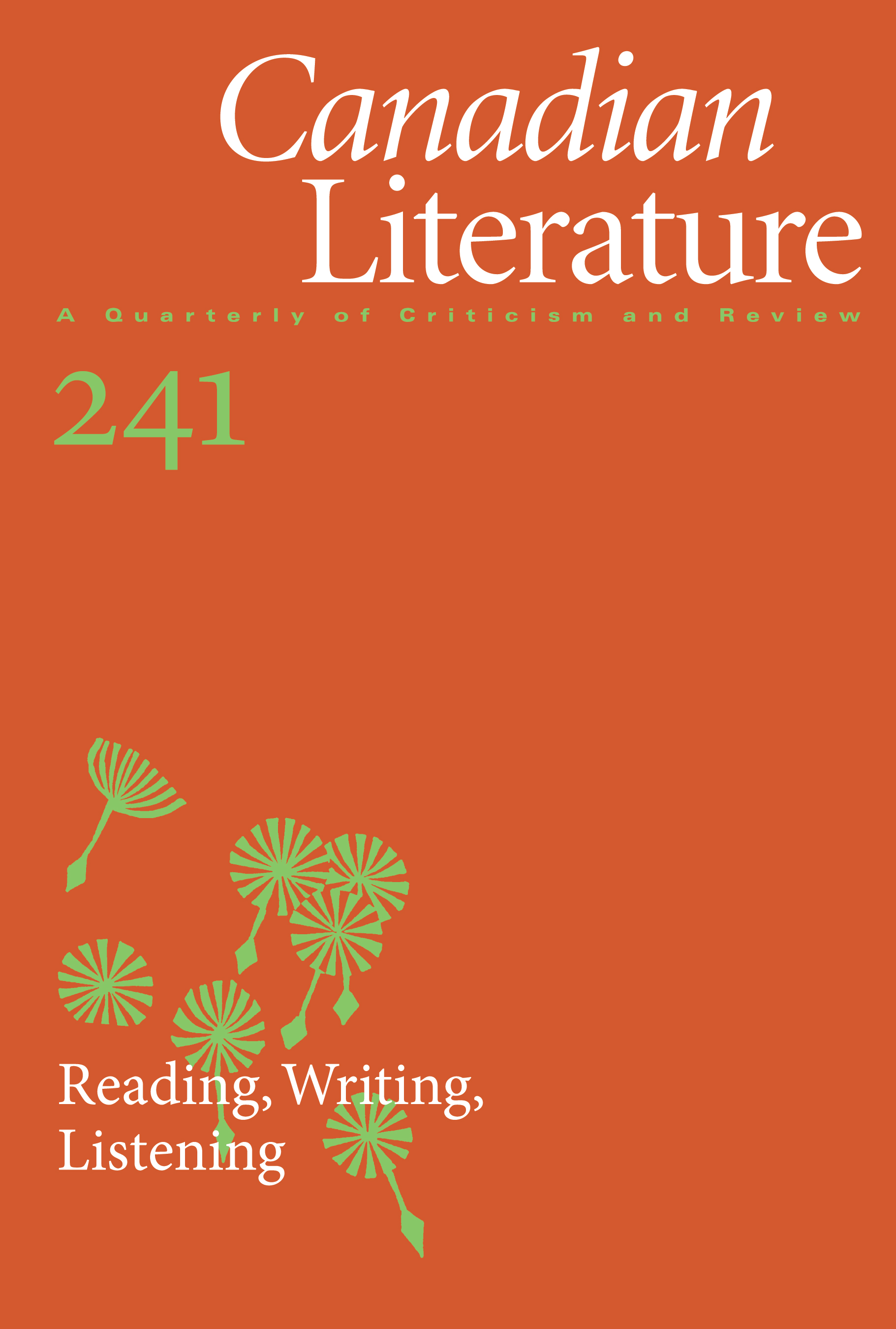Alice Munro’s “Providence,” Second-Wave Feminism, and the (Im)possibilities of Reconciling Motherhood and Liberation
DOI:
https://doi.org/10.14288/cl.vi241.191949Abstract
Amidst the theoretical and discursive landscape of 1970s liberationist feminism, Alice Munro published her 1978 short-story cycle, Who Do You Think You Are? The seventh story in the collection, “Providence,” remains one of the earliest examples of Canadian prose which explicitly explores the conflicts inherent to women’s experiences of feminist liberation and motherhood, and is among Munro's least critically explored stories. “Providence” captures the tenuous and exquisite experience of single-mothering a young child, its difficulties and sacrifices, and the equally painful and (still) unspeakable choice to leave one’s maternal role behind. Munro's central protagonist ultimately chooses feminist liberation over motherhood, unable to reconcile her desire for personal autonomy and freedom from the patriarchal family with her daughter’s need to be mothered.


